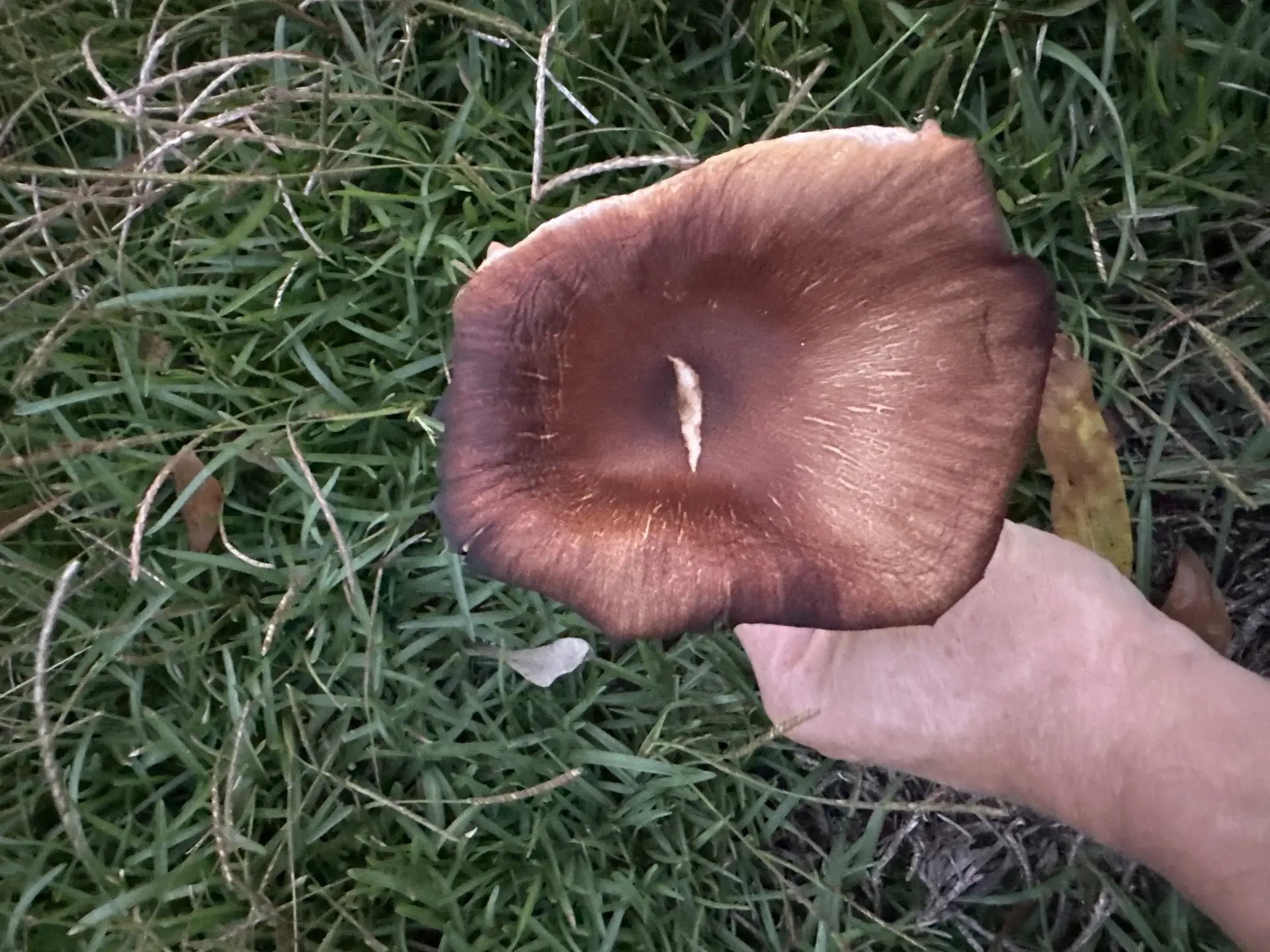Brown Rollrim
Paxillus involutus
Identification: Highly Toxic Brown Rollrim (Paxillus involutus)

1 / 4
Wszystkie zdjęcia (4)
Kluczowe cechy
- Cap dark reddish-brown
- depressed center
- often velvety or fibrillose.
- Gills deeply decurrent
- thick
- widely spaced
- rusty orange-brown.
- Gills often cross-veined (anastomosing) near the stem.
- Stem pale brown
- curved
- lacking a ring or volva.
- Grows terrestrially in grass or soil
- often near trees.
Kolor:
Dark reddish-brown cap; rusty orange-brown gills; pale brown stem.
Zapach:
No distinctive smell
Wzór wzrostu:
Clustered
Środowisko:
Soil/Grass
Siedlisko i występowanie
Siedlisko:
Lawn or grassy area, associated with trees (mycorrhizal).
Występowanie:
Widespread across the Northern Hemisphere (North America, Europe, Asia).
Sezonowość:
Summer to Autumn
Wartość ekonomiczna
Popyt rynkowy:
None - toxic
Zakres cenowy:
N/A
Użytek komercyjny:
None
Informacje o toksyczności
Objawy:
- Severe gastrointestinal distress (vomiting, diarrhea).
- Abdominal pain.
- Rarely, potentially fatal autoimmune hemolytic anemia (Paxillus syndrome).
Czas wystąpienia objawów:
30 minutes to 3 hours (GI symptoms)
Pierwsza pomoc:
- Seek immediate emergency medical attention.
- Contact poison control immediately.
- Retain a sample of the mushroom for identification.
Kontakty alarmowe:
- 911 (US)
- Poison Help (US): 1-800-222-1222
Podobne gatunki
Velvet-footed Pax
Tapinella atrotomentosa
Kluczowe różnice:
- Stem is distinctly dark brown to black and velvety.
- Grows on wood, not soil.
Poison Pax
Paxillus rubicundulus
Kluczowe różnice:
- Typically smaller size.
- Cap often lighter, more yellowish-brown.
Zalecane działanie
Do not touch or consume. Ensure immediate disposal of all specimens. Wash hands thoroughly after handling.